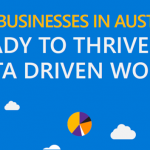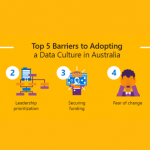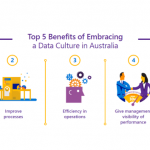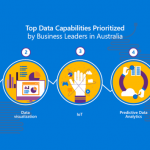Microsoft SQL Server 2016: creating the future today
At yesterday’s Microsoft SQL Server 2016 launch in Australia, we were thrilled to unveil a new product that equips customers with real-time operational analytics, rich visualisations on mobile devices, security technology and hybrid cloud scenarios.
Microsoft SQL Server 2016 arrives at a critical time for Australian businesses. With data analytics, machine learning and the cloud exerting a stronger influence than ever, businesses need a solution that will help them manage their data efficiently to generate competitive insights. With its ability to help create rich data cultures, Microsoft SQL Server 2016 is that solution.
Creating competitive data cultures
A data culture makes the right tools available to all members of an organisation, creating an environment in which insights can come from any person, at any time.
According to a recent Microsoft report[1], 91 per cent of businesses believe that it is important to develop agile, data-rich business cultures. However, only one-third feel confident that their employees are equipped to use data in the collaborative way that a data culture requires.
Microsoft SQL Server 2016 helps solves this problem. Equipped with SQL Server 2016, organisations are able to involve more people than ever before in their data cultures. In this way, they can create an environment in which new technologies and fresh mindsets converge to carry them into a successful and prosperous future. So what does this mean for individual organisations?
Working smarter, not harder, at WorldSmart
WorldSmart is the largest provider of point-of-sale solutions to Australia’s independent grocery stores. Like WorldSmart itself, these grocery stores are experiencing considerable growth, with one WorldSmart customer – Tasmania’s Hill Street IGA – opening six new stores in 2015 alone.
Like many other independent grocers, Hill Street IGA has benefited from a WorldSmart business development tool created using SQL Server 2016. This tool analyses various data points, including stock levels and point-of-sale information, before generating relevant insights and displaying them on a Power BI dashboard. This allows Hill Street IGA to compare prices across its stores and stay competitive in the marketplace.
WorldSmart itself can now run digital campaigns targeted at individual customers, from CTOs to CEOs, and measure their effectiveness using purpose-built machine learning programs. SQL Server 2016 takes only eight seconds to analyse the resulting data and generate insights that can be used to fine-tune future campaigns. Previously, this process would have taken up to three months.
Training tomorrow’s gold medallists today at the Australian Institute of Sport
An organisation is only as effective as the people it includes and the tools they’re equipped with. The Australian Institute of Sport (AIS) recruits the country’s best athletes, and it’s now using technology and data to get them on more podiums, more often.
The AIS partnered with Microsoft and BizData to address a critical challenge for elite athletes: how to train effectively without becoming ill or sustaining avoidable injuries.
Athletes can lose up to 20 per cent of their training time due to injuries and illness – and when they don’t train, they’re often unable to meet their performance targets.
Using an Azure SQL Database powered by Azure machine learning and predictive analytics, the AIS is looking at true positive signs on athletes who may be injured over the next three days. This has the potential to increase athletes’ safety – and their chances of success in the future.
See the feature stories for WorldSmart here and AIS here to learn more about how they’re using data platform technologies to create rich data cultures.
[1] The Microsoft Asia Data Culture study conducted in April 2016 is a combination of qualitative and quantitative primary research involving 940 senior business leaders from medium-sized and large companies in 13 countries. It explores the state of data cultures within their organisations today.










